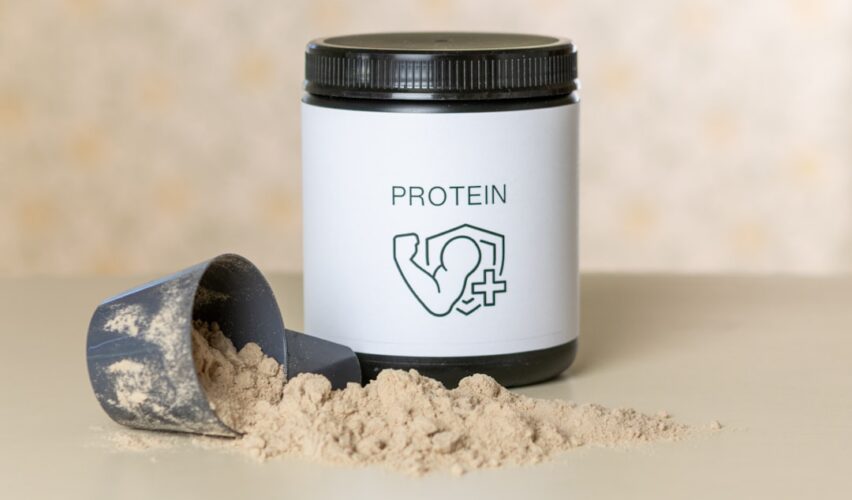When it comes to muscle growth, the timing of your protein intake can be just as crucial as the amount you consume. You may have heard the phrase “anabolic window,” which refers to the period after exercise when your muscles are particularly receptive to nutrients, especially protein. This concept suggests that consuming protein at strategic times can enhance muscle recovery and growth.
By understanding the importance of protein timing, you can optimize your workouts and maximize your gains. Incorporating protein at specific times can help you take full advantage of your training sessions. For instance, if you consume protein before and after your workouts, you may experience improved muscle protein synthesis, which is essential for muscle repair and growth.
This means that not only does the quantity of protein matter, but also when you consume it. By paying attention to your protein timing, you can create an environment in your body that is conducive to building muscle and recovering effectively.
Key Takeaways
- Protein timing plays a crucial role in muscle growth and recovery
- Pre-workout protein consumption may not make a significant difference in muscle growth
- Post-workout protein intake is essential for muscle recovery and growth
- Protein timing and muscle protein synthesis are closely linked for optimal muscle growth
- The amount and timing of protein consumption are important for maximizing muscle gains
Pre-Workout Protein Consumption: Does It Make a Difference?
You might be wondering whether consuming protein before your workout has any real benefits. The answer is a resounding yes! Pre-workout protein consumption can provide your body with the necessary amino acids to fuel your muscles during exercise.
When you eat protein before hitting the gym, you are essentially priming your body for the physical demands ahead. This can lead to improved performance and greater muscle gains over time. Moreover, having a protein-rich snack or meal before your workout can help prevent muscle breakdown during intense training sessions.
If you enter the gym with a sufficient supply of amino acids in your bloodstream, your body is less likely to tap into its muscle stores for energy. This means that by prioritizing pre-workout protein, you are not only enhancing your performance but also protecting your hard-earned muscle mass.
Post-Workout Protein Intake: The Key to Muscle Recovery

After an intense workout, your muscles are in a state of repair and recovery. This is where post-workout protein intake becomes vital. Consuming protein shortly after exercising can significantly enhance muscle recovery and growth.
You may have heard that the first 30 to 60 minutes post-exercise is the most critical time to refuel your body with nutrients. During this period, your muscles are particularly receptive to amino acids, which are essential for repairing and building new muscle tissue. In addition to aiding recovery, post-workout protein consumption can help replenish glycogen stores that may have been depleted during exercise.
This is especially important if you engage in high-intensity or endurance training. By ensuring that you consume a protein-rich meal or shake after your workout, you are setting yourself up for success in your next training session and promoting overall muscle growth.
Protein Timing and Muscle Protein Synthesis: What You Need to Know
Understanding the relationship between protein timing and muscle protein synthesis (MPS) is crucial for anyone looking to build muscle effectively. MPS is the process by which your body repairs and builds new muscle fibers after exercise. To maximize MPS, it’s essential to consume protein at strategic intervals throughout the day.
You should aim to consume a source of high-quality protein every few hours, particularly around your workouts. This approach ensures that your body has a steady supply of amino acids available for MPS, allowing for optimal recovery and growth.
By focusing on both the timing and distribution of your protein intake, you can create a more favorable environment for muscle development.
Protein Timing for Maximum Muscle Gains: How Much and When to Eat
To achieve maximum muscle gains, it’s essential to not only focus on when you eat but also how much protein you consume. The general recommendation is to aim for about 20-30 grams of high-quality protein per meal or snack, especially around workout times. This amount has been shown to stimulate MPS effectively.
However, individual needs may vary based on factors such as body weight, training intensity, and overall goals. In addition to meal timing, consider incorporating protein-rich snacks throughout the day. This could include options like Greek yogurt, cottage cheese, or a protein shake.
By ensuring that you have a consistent intake of protein spaced throughout the day, you can support ongoing muscle repair and growth while also keeping hunger at bay.
Protein Timing and Meal Frequency: Does It Impact Muscle Growth?

The frequency of your meals can play a significant role in muscle growth, particularly when it comes to protein timing. You may find that eating smaller, more frequent meals throughout the day helps maintain energy levels and supports muscle recovery more effectively than larger meals spaced further apart. Research indicates that consuming protein every 3-4 hours can optimize MPS and promote better overall muscle development.
By adopting a meal frequency strategy that includes regular protein intake, you can ensure that your body remains in an anabolic state throughout the day. This approach not only aids in muscle growth but also helps regulate appetite and maintain energy levels during workouts. You might consider planning out your meals and snacks ahead of time to ensure that you’re meeting your protein needs consistently.
Protein Timing and Bedtime Snacks: Is It Beneficial for Muscle Recovery?
You may be surprised to learn that consuming protein before bed can be beneficial for muscle recovery and growth. During sleep, your body undergoes various repair processes, including MPS. By having a small protein-rich snack before bedtime, you provide your body with the necessary amino acids to support these processes while you rest.
Casein protein is an excellent option for a bedtime snack due to its slow digestion rate, which allows for a gradual release of amino acids throughout the night. This sustained supply can help prevent muscle breakdown during sleep and promote recovery from the day’s workouts. Incorporating a bedtime snack into your routine could be a simple yet effective way to enhance your overall muscle-building efforts.
Protein Timing and Nutrient Timing: How They Work Together for Muscle Growth
While protein timing is essential for muscle growth, it’s important to consider how it fits into the broader concept of nutrient timing. Nutrient timing involves strategically consuming carbohydrates, fats, and proteins around workouts to optimize performance and recovery. By understanding how these macronutrients work together, you can create a more comprehensive approach to fueling your body.
For instance, pairing carbohydrates with protein post-workout can enhance glycogen replenishment while also promoting MPS. Consuming both macronutrients together ensures that your body has the necessary resources for recovery and growth. By focusing on nutrient timing in conjunction with protein timing, you can maximize the benefits of your dietary choices and support your fitness goals more effectively.
Protein Timing and Resistance Training: Optimizing Muscle Protein Synthesis
If you’re engaged in resistance training, optimizing your protein timing becomes even more critical for maximizing muscle gains. Resistance training creates micro-tears in muscle fibers, which need to be repaired through MPS. To support this process effectively, it’s essential to consume adequate amounts of protein both before and after your workouts.
You might consider scheduling your workouts around times when you can easily access high-quality protein sources. For example, if you train in the morning, having a protein-rich breakfast afterward can set the tone for the rest of the day’s meals. By aligning your training schedule with strategic protein intake, you can create an optimal environment for muscle growth and recovery.
Protein Timing and Endurance Exercise: Is It Necessary for Muscle Recovery?
While much of the focus on protein timing has been on resistance training, it’s also important to consider its role in endurance exercise. If you’re an endurance athlete or engage in long-duration cardio sessions, adequate protein intake is crucial for recovery as well. Although endurance training primarily targets cardiovascular fitness, it can still lead to muscle breakdown if not properly managed.
You might find that consuming a combination of carbohydrates and protein post-exercise aids in replenishing glycogen stores while also supporting MPS. By recognizing the importance of protein timing in endurance training, you can enhance both performance and recovery.
Protein Timing and Muscle Growth: The Bottom Line
In conclusion, understanding the significance of protein timing is essential for anyone looking to maximize their muscle growth potential. From pre-workout consumption to post-workout recovery strategies, every aspect of how and when you consume protein plays a role in optimizing muscle development. By focusing on meal frequency, nutrient timing, and even bedtime snacks, you can create a comprehensive approach that supports ongoing progress.
Ultimately, it’s about finding what works best for you personally while adhering to these principles of protein timing. By being mindful of when you eat and ensuring that you’re meeting your daily protein needs consistently, you’ll be well on your way to achieving your fitness goals and building the physique you’ve always desired.
FAQs
What is protein timing for muscle growth?
Protein timing for muscle growth refers to the concept of consuming protein at specific times to optimize muscle protein synthesis and promote muscle growth.
When is the best time to consume protein for muscle growth?
The best time to consume protein for muscle growth is within the first few hours after a workout, as this is when the body is most receptive to protein for muscle repair and growth.
How much protein should be consumed for muscle growth?
The amount of protein needed for muscle growth varies depending on factors such as body weight, activity level, and fitness goals. However, a general guideline is to consume 0.7-1 gram of protein per pound of body weight per day for muscle growth.
What are some good sources of protein for muscle growth?
Good sources of protein for muscle growth include lean meats, poultry, fish, eggs, dairy products, legumes, and protein supplements such as whey protein.
Is it important to consume protein before bed for muscle growth?
Consuming protein before bed can be beneficial for muscle growth, as it provides the body with a steady supply of amino acids throughout the night, which can support muscle repair and growth during sleep.
Can protein timing alone lead to muscle growth?
Protein timing is just one factor in promoting muscle growth. It is important to also have a well-rounded diet, engage in regular resistance training, and get adequate rest and recovery for optimal muscle growth.














